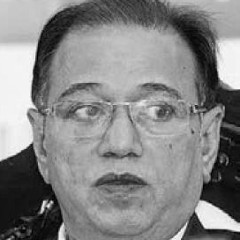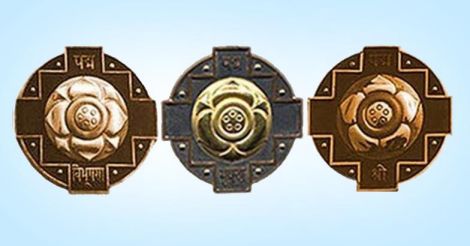The number of people returning honours, including Padma awards, is growing. There is news that more than 30 writers have returned Sahitya Akademi awards in protest of the growing intolerance in the country. Film-makers, scientists and artistes too have followed the path of writers and returned awards. A lot of comments have been made in favour of it and against it.
A prominent scientist and former chairman of ISRO, Dr Madhavan Nair, had opined that when trends against social norms emerge, efforts should be made to correct them instead of creating news by returning awards.
Prominent film actor Kamal Hasan’s opinion is that the honour given for excellence after appraisal by a special panel of experts has no connection to the government. Union finance minister Arun Jaitley says it is part of a ‘manufactured’ protest against the government in the name of a ‘manufactured’ crisis.
Awards and honours are recognitions given by society to people who excel in different fields and make their mark. They are meant to motivate people and should not be used to attain any objective.
Awards could be returned for many reasons. But returning honours like Padma awards worries all the people in the country. Such things have happened before too.
Prominent Kathak dancer Sitara Devi returning Padma Bhushan saying that it was given to much younger and not famous people compared to her before her is an example.
Saying that officials and media personnel receiving awards from the government is not right, Krishnaswamy Subramaniam rejected Padma Bhushan in 1999.
Badminton star Saina Nehwal rejected the award in protest against awarding Padma Bhushan to wrestler Sushil Kumar while ignoring her, a two-time Olympic medallist.
The nation had formed a policy on national honours and Padma awards even before it adopted the Constitution. National awards came into existence in 1954 with the proclamation of the president.
Padma awards were announced by the president on the eve of the Republic Day on which the Constitution came into force.
The recommendation given by the award committee constituted by the prime minister has to be approved by the prime minister and the president. This honour, with the signature and the seal of the president and the national emblem, is very valuable.
The Supreme Court had made it clear in the Balaji Raghavan case that Padma awards were not honours as per Article 18(1) of the Constitution.
Justice Kuldip Singh had said in a separate verdict that this award, which is totally national in nature, was beyond party and political considerations.
He had recommended that Lok Sabha speaker, Supreme Court chief justice and Leader of Opposition in the Lok Sabha should be in the award selection committee.
But this recommendation was not considered. A committee chaired by K.R. Narayanan had been formed in 1996 to stipulate guidelines for the Padma award selection committee. The recommendations given by this committee were also not considered.
We do not have laws to prevent returning of Padma awards. Similarly, there is no permission to return awards too. However, we should deliberate whether it is right to return such awards received in public as per the interests of the recipients.
Though they have complete freedom to accept or return honours, disrespecting the head of state and the national emblem by returning them cannot be accepted.
The delay in framing clear guidelines on this by the government will affect the nation’s glory and prestige.
(The writer is a former judge of the Supreme Court)





































































































































































































































































































































































































































































































































































































































Disclaimer
The comments posted here/below/in the given space are not on behalf of Manorama. The person posting the comment will be in sole ownership of its responsibility. According to the central government's IT rules, obscene or offensive statement made against a person, religion, community or nation is a punishable offense, and legal action would be taken against people who indulge in such activities.